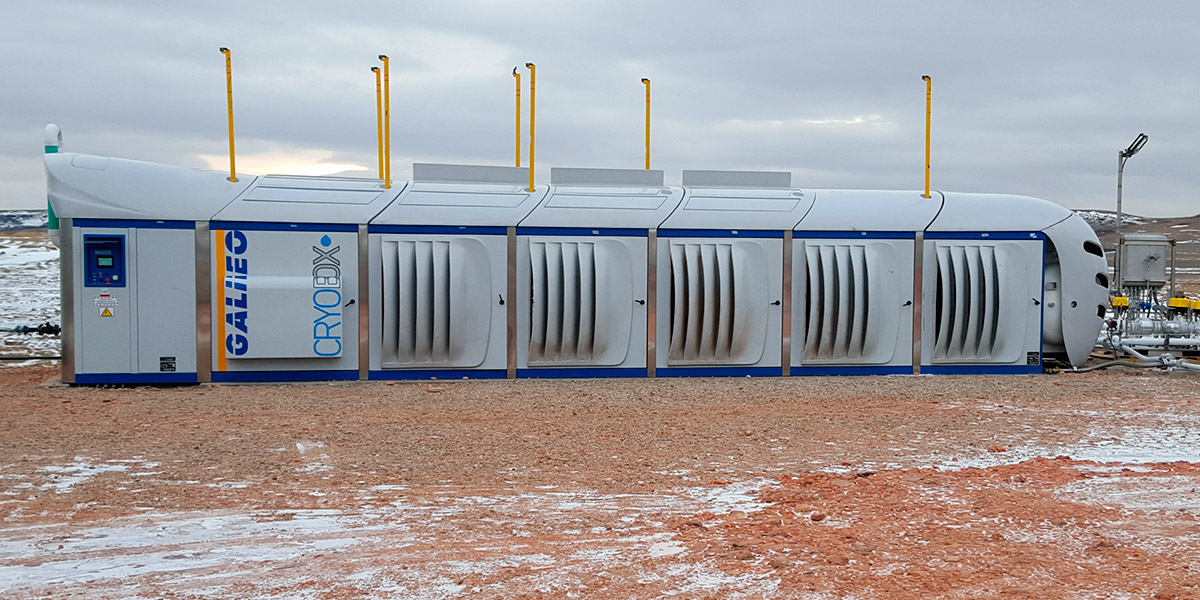Golar Power has teamed up with Argentina’s Galileo Technologies to expand its LNG footprint in Brazil.
Under the deal, Galileo will provide gas conditioning, distributed LNG production, LNG filling stations and regasification plants.
Golar Power, a venture of Golar LNG and Stonepeak Infrastructure Partners, says this initiative will increase the share of local LNG in its supply.
The venture aims to boost energy transition towards a “cleaner energy chain with a lower carbon footprint in Brazil.”
Additionally, it plans to do this by helping customers switch from diesel, LPG or heavy fuel oil to natural gas.
This goal is part of the National Novo Mercado de Gás Program that considers LNG an economical and low carbon footprint fuel source.
Furthermore, the duo will also focus on the production of bio-LNG.
First order
The first Golar Power’s orders to Galileo involve the provision of two micro LNG clusters.
The first cluster will include two Cryobox LNG production stations connected to a gas conditioning plant.
These will produce 30 tons a day of LNG in a mature upstream field in the state of Bahia.
The second cluster in Sao Paulo will capture and liquefy biomethane coming from landfills.
It will have a cryobox station with the capacity of providing up to 15 tons a day of bio-LNG.
Marcelo Rodrigues, VP of Golar Power said thanks to this deal the company will add bio-LNG to its portfolio thus offering consumers “less expensive and cleaner alternatives to conventional fuel.”
With this LNG solution, the venture would take advantage of Brazil’s gas out of the system and commercialize it as liquid fuel.
Once distributed through the road network, LNG will feed power stations, gas distributors, industries, as well as light and heavy vehicles.
“Unlike previous generation technologies, our gas treatment and liquefaction technologies adapt to scattered methane sources, which frequently are those closest to consumers,” said Horacio Andrés, vice president of Galileo’s unit in Brazil.
“The solutions developed by Galileo allow for the escalation of the installed capacity by means of modules; this will help us meet the growth of the demand with flexibility and supplement our small scale LNG projects and technologies,” said Rodrigues.
By distributing LNG through the road network, Golar Power would overcome the limits posed by the local gas network infrastructure.
Brazil has about 9,409 km of pipelines which serve only 5% of the country’s municipalities.
“Our challenge is to take natural gas to those places, and that is why we chose LNG for small-scale distribution,” said Rodrigues.
“Green Corridors”
The development of new gas sources in Brazil will be paired with new consumption alternatives.
Golar Power will install Galileo’s LNG filling stations in Brazil’s network stations to establish “Green Corridors”.
These would be the Brazilian version of Blue Corridors.
By using LNG, heavy vehicle fleets will reduce CO2 emissions by about 20%.
Furthermore, using chilled fuel will eliminate particulate, nitrogen oxide and sulphur oxide emissions, according to Golar Power.
Regasification plants and storage systems will supply Industrial clients to facilitate gas consumption in furnaces, engines and turbines.
Worth mentioning here, Golar Power already operates the Sergipe LNG-to-power project in Brazil.
The FSRU Golar Nanook that supplies the facility recently received its third cargo since launch in March.
The Sergipe development includes a regas terminal and the 1.5GW plant in Porto de Sergipe.
The development is Brazil’s first private-sector LNG-to-power project.

